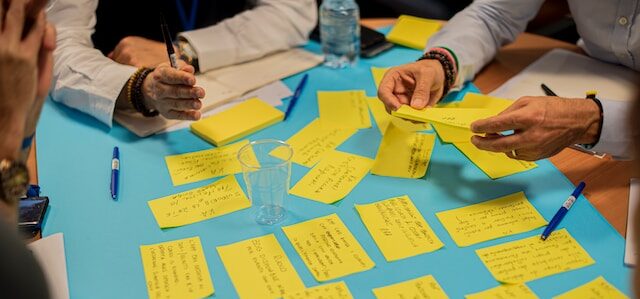In this article in regierungsforschung.de, the academic online magazine of the NRW School of Governance, Tobias Escher explores the question of whether the participation formats required for a participatory development of the transformation to a more sustainable society can also be implemented in an ecologically sustainable manner. In other words, the question is how the principle of (ecologically) sustainable governance can be upheld in the democratically important area of political participation.
Abstract
The transformation to a sustainable society can only succeed through the involvement of all stakeholders. At the same time, sustainable governance requires that these participation processes also fulfil the requirements of sustainability. Based on a systematic discussion of the greenhouse gas emissions generated by various political participation formats, this article argues that in view of the functional and normative significance of political participation, its environmental footprint does usually not contradict the demand for sustainable governance.
Key findings
- The implementation of participation formats generates greenhouse gas emissions due to the energy required, the mobility of the participants and, where applicable, catering and accommodation. Crucially, the level of emissions depends on whether the formats are held in person or digitally (see table below).
- For local face-to-face formats, the emissions from the event venue and mobility of participants are comparatively low and only amount to around 2kg of CO2-equivalents per person in the scenario analysed. The emissions increase considerably as soon as participants have to travel further (using fossil-fuelled transport) – in the underlying scenario by a factor of twelve to 24kg. This is roughly equivalent to the average emissions from a 100km car journey.
- In contrast, online participation formats only generate very low emissions (around 0.3kg per person in the scenario). Nevertheless, the choice of participation formats cannot be based solely on their short-term ecological costs, but must also take into account normative requirements for inclusion and popular control. Digital participation formats in particular represent significant barriers to participation for already disadvantaged population groups (see also our DigiBeSt-report).
- Overall, participation has an ecological footprint, but this is generally justified by functional and normative considerations because after all, governance should not only be sustainable, but above all democratic!
| | face-to-face participation | digital participation | ||
| | local | (inter)-regional | asynchron | synchron |
| energy | heating & climatisation of event venue | operation of end user devices & data centres | more data intensive communication | |
| mobility | travel | travel | not applicable | |
| catering & accommodation | catering | accommodation | not applicable | |
Publication
Escher, Tobias (2024): Die politische Gestaltung der Nachhaltigkeitstransformation: partizipativ und ökologisch? Essay. In: Regierungsforschung.de (15. Jahrgang). https://regierungsforschung.de/die-politische-gestaltung-der-nachhaltigkeitstransformation-partizipativ-und-oekologisch/




